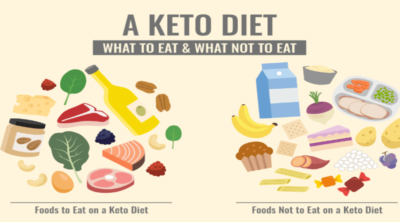
A diet low in proteins is usually prescribed to people suffering from kidney diseases. The following article will give you more information on the benefits and effects of this diet.
You may have come across many diet plans that advise a high protein diet, as proteins are essential for the human body. Proteins are called building blocks of the body and are required to carry out several functions in the body. In that case, you may find that following a low-protein diet is at odds with the common practices.
An Overview on the Diet
A diet low in proteins is usually advised to people suffering from kidney and liver diseases. When a person suffers from kidney diseases, his kidneys do not function properly. In that case, if he consumes too much protein, urea starts building up in the bloodstream. This can lead to side effects like nausea, total loss of appetite, etc. Therefore, people suffering from renal failure are advised to go for this diet.
On the other hand, in case of liver diseases, food and proteins do not get metabolized properly because the liver does not function properly. Therefore, doctors advise people suffering from liver or kidney diseases to go for a low-protein diet.
Food List
Protein is found in large amounts in nearly all non-veg foodstuffs like eggs, meat, poultry, fish, and in dairy foods like milk, yogurt, cheese, etc. It is also found in several vegetarian foods like beans, lentils, some fruits and vegetables. If you follow this diet, you should limit the intake of these foods and also of protein fortified products like breakfast cereal, protein powders, and supplements, etc.
Instead, you can have certain fruits and vegetables, whole grain breads, low-sugar cereals, brown rice, whole-wheat pasta, low-protein breads, fruit juices, corn, ketchup, salads (without dressing), etc.
Effects of Following the Diet
Having a diet low in protein helps in prevention of kidney diseases up to some extent. Consuming excess protein exerts extra pressure on the kidneys, which makes them work harder. If this continues for a long time, it can result in kidney diseases.
On the other hand, eating excess protein and no carbohydrates can lead to a condition known as ketosis. It results in several long-term side effects like lethargy, lack of energy, dehydration, etc.
This diet is preferred because excess consumption of proteins also leads to excess calcium requirement. If the body is deficient in calcium, it takes up calcium from the bones and makes them weak, resulting in osteoporosis.
On the other hand, extreme low intake of proteins causes protein deficiency, which can lead to abnormal growth and development. This diet should not be followed by those planning to build muscle, as proteins are very essential for building muscle mass.
Lastly, note that this diet is usually meant for those suffering from kidney diseases. In other cases, it is better to consult the doctor before making any major dietary changes. Take care!
Disclaimer: This article is meant only to provide information. It is not to be substituted for doctor’s consultation.


